|
Hungry Heroines
|
It bugs me when women don’t eat. I like to eat. Whether in real life or in books – I’m suspicious of girls who never seem to eat, or just nibble.
I remember reading something about Drew Barrymore, when she was co-producing Charlie’s Angels. There’s a scene in the movie where the Angels go through the drive-thru and order burgers and milkshakes, because she wanted it to be clear that these women do eat, when they’re not busy kicking Crispin Glover’s ass.
So when I started writing this book, I knew I wanted to write a heroine who enjoys food. And a hero who delights in her enjoyment of food. Because I think a lot of women read their first romance novels as teens, at that “trying age” when they are trying to figure out their developing bodies and sexuality. I try to think about a teenage girl reading my book for clues, and I want to build in affirming messages about body image and sexual awakening — without being heavy-handed, of course.
So, Lucy likes to eat. A lot. And she never once feels guilty or apologetic about it.
Lucy Waltham’s appetite was insatiable.
Henry liked to jest that when she married, he would provide her a dowry of two cows, six pigs, and two dozen chickens – just so her husband could keep her fed. It was only a joke, of course. In all likelihood, her dowry would be worth far less.
But no one would be jesting to say Lucy downed meals that would put a farm laborer to shame. Lucy lived hungry. She devoured every day. This appetite for life required a steady supply of actual food. She nicked hot rolls from the kitchen, rang for cold chicken at midnight, and spent long afternoons grazing in the orchards. And she never missed breakfast.
How about you? What messages, good or bad, do you think the romance genre gives young women? Have you assigned your characters certain traits in hopes of sending a message? Or do you find the very idea of such “messages” overly PC or didactic?


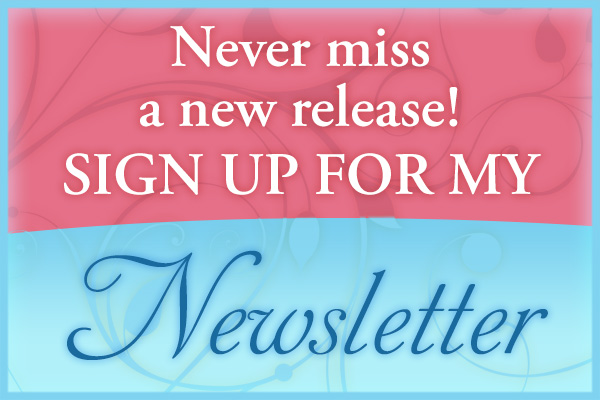
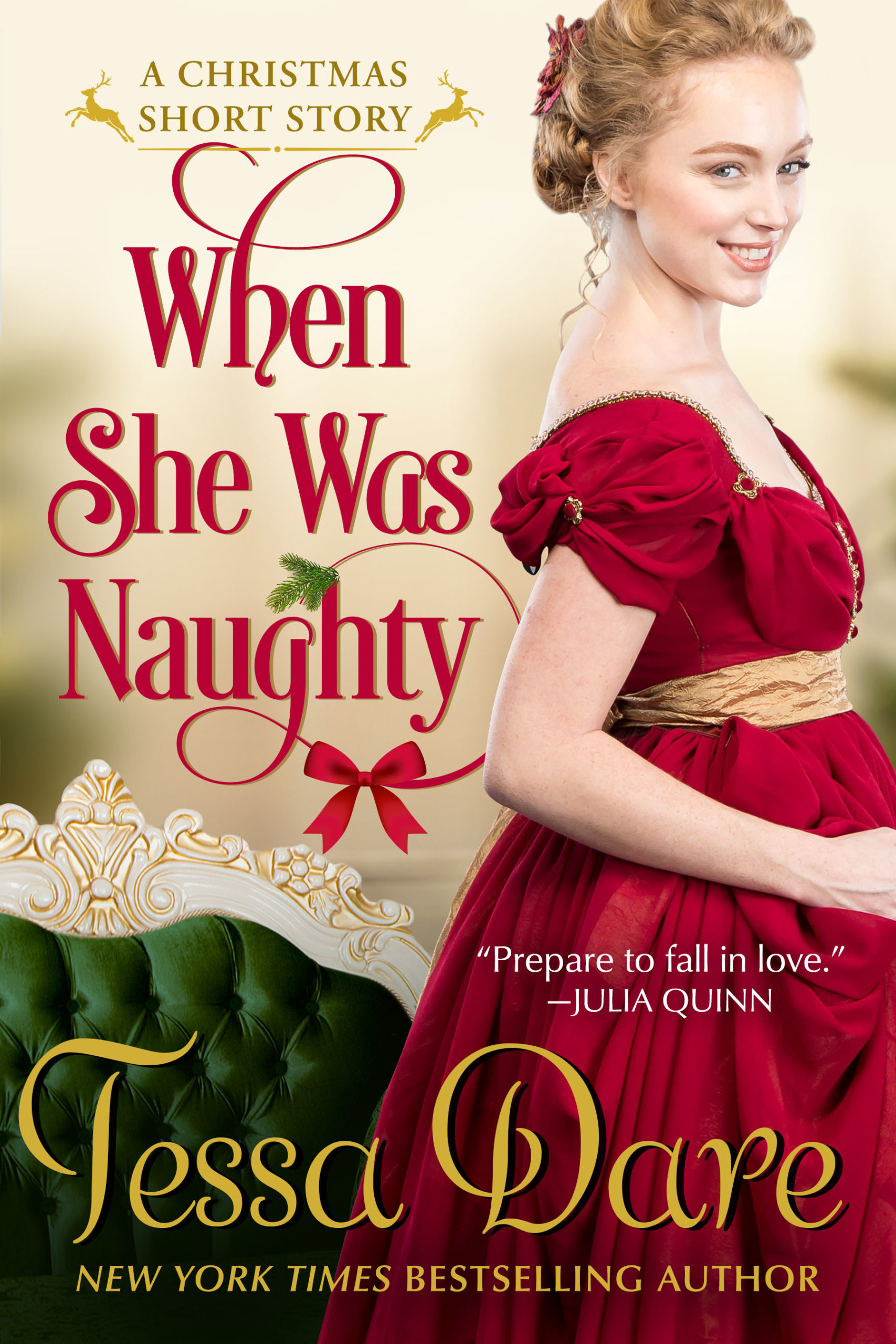
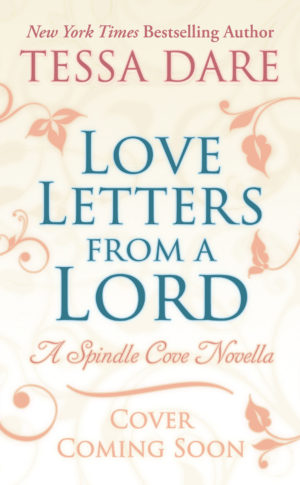
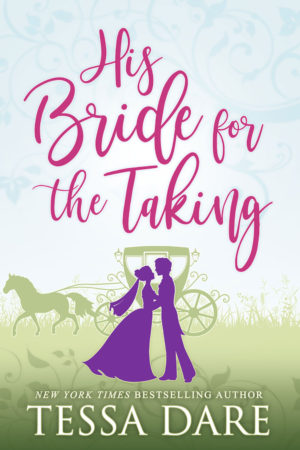
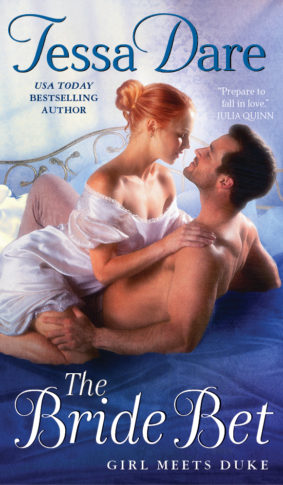
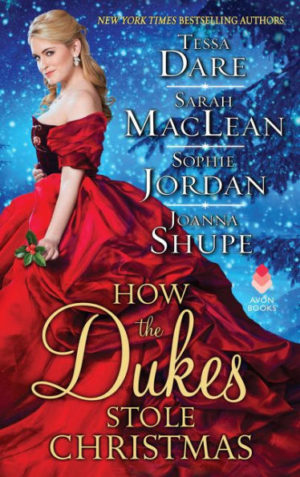

March 6th, 2007 at 10:16 am · Link
Oh gosh, such a loaded question. Usually when I read romances, I’m escaping so I’m not keen on messages that are overt. I don’t like to be preached to. I love HEAs and spunk and wit and charm and beauty. When I want a story with a message I will watch a movie like CRASH. When I want to be on the edge of my seat I’ll watch The Departed. Who Dunnit, gimme Agatha Christie.
But that is part of her character and the excerpt is not the least bit preachy it’s amusing so readers will love that.
And I didn’t even think twice about the girls in Charlie’s Angels getting burgers, milkshakes and fries. I had no idea it was a conscious attempt on her part. If that is a ‘message’ then that’s the way they should come across.
March 6th, 2007 at 10:47 am · Link
You’re right, Bev – “message” is kind of a loaded word. I certainly don’t mean it as an overarching theme of the book. Just like in Charlie’s Angels – I just want to make sure she eats, and her hero finds it rather sexy.
March 6th, 2007 at 12:06 pm · Link
I love to eat, and I think that food and love and sex go very well together. I’m not sure that’s a “message” or not.
Jenny Crusie’s “Bet Me” has a character whose mother has placed her on a diet for her sister’s wedding, where she’s only allowed to eat salads. The hero starts feeding her pasta and bread and, in one incredibly sexy scene, a Krispy Kreme.
She falls in love with chicken marsala and tries to make it herself with low-fat spray. Eventually, she figures out that you need to just pour in the butter and the olive oil.
“Message” is the wrong term for this. For me, it’s something quite, quite different. I doubt I could ever really get the kind of person who is into denying herself one of life’s most basic pleasures. Food is not your enemy.
I feel the same way about sex. There are still a shocking number of heroines out there who are just dicked in the nob about sex. I just read one the other evening, too, which shall remain nameless, where the girl was totally unaware of sexual desire, and thought it wicked and wrong.
But I think there’s a growing number of authors who take desire–in all its forms–as one of the normal, ordinary, and delicious parts of life.
March 6th, 2007 at 3:01 pm · Link
Oh wow! CM, I’m reading Bet Me right now! I’m on page 46, right after their first date when he takes her to the restaurant. What’s more, Tessa’s question made me think of the book and that scene. Weird.
Tessa, as long as you don’t sound like you’re preaching, go for it.
Alice
March 6th, 2007 at 3:26 pm · Link
Jennifer Crusie is a great example. I haven’t read Bet Me yet, but I’ve read Anyone But You, in which the 40-year-old heroine resists letting her 30-year-old hottie see her without the “Incredibra.”
Part of what brought the whole issue to mind was a comment from an anthropologist friend of mine (who doesn’t read romance, but has read a few since I started writing it). She said something about women “participating in their own subjugation” by reading romance, much in the same way I imagine she’d say the same about reading Cosmo.
I had a very knee-jerk defensive reaction at first – I mean, the genre has come a long way from the virgin-falls-in-love-with-her-rapist theme. But then I thought about it more. And it’s true that there’s the potential for romance to underscore the media images of skinny, perfect women, or the social shame that can get heaped on women who openly acknowledge their sexual desire. There’s also the potential for romance novels to do the opposite – say it’s okay to throw some butter in the skillet, or burn the Incredibra.
I just want to make sure my books fall into the second category, and that my heroines never apologize for their desires – whether they desire food, or sex, or adventure, or something else entirely.
March 6th, 2007 at 5:48 pm · Link
I’m not a fan of message books, but like CM said, I don’t think that’s what you’re talking about. You’re trying to make your heroines realistic and human. I mean, come on, we all eat. Even the girls who on a date might insist that one pea is all they can possibly cram into their stomachs then go home and eat cookies and ice cream.
I don’t consciously write messages into my stories. I *do* try to avoid doing things like having heroines who 30+ and completely naive, particularly about sex. I consciously try to make my heroines competent, no matter their other failings.
March 6th, 2007 at 10:53 pm · Link
I love how conscious you are of the possible impact of your art. I feel silly because I’ve never even asked myself this question, and I think it’s a good one.
I love the part of your book where Lucy’s appetites are described, because it contributes to our understanding of the tumbling forward motion of her lust for life in general. And if it resonates with a teenager who likes to eat but feels guilty about it, then so much the better.
We should take responsibility for the myths or messages our writing is endorsing or perpetuating. I’ve been struggling lately with the whole “simultaneous orgasm during intercourse” convention–but that’s a whole different discussion.
Our genre is fraught with pitfalls, and I applaud your conscientious approach.
March 6th, 2007 at 11:20 pm · Link
wow. . . and I just worry about the plot hanging together without the peanut gallery (my husband) shouting “plot hole, plot hole!”
But, I do agree that we need to portray our heroines as real, thriving, spunky, and most of all, accepting of themselves.
I applaud!
March 7th, 2007 at 10:44 am · Link
LOL, Lenora – um, that’s one myth I’ m guilty of perpetuating. Oh, well.
March 8th, 2007 at 3:25 pm · Link
Hey Tessa! I wander over here but I don’t think I’ve posted yet! I would have to say that I LOVE how your character loves food. I remember about 9 or 10 years ago when I was just getting into romance and going into HS. The romances had so much of the traditional beauty. You know…gorgeous face, big boobs, small waist…that sort of thing. That was all fine and dandy, but I remember how much easier it was to relate to heroines who had more realistic traits. I liked if they weren’t overly perfect. Looking at some of the romance success as of late, I’d say that there’s a definite move towards making there heroine perfect because of her imperfections, if that makes sense!
March 9th, 2007 at 12:24 pm · Link
Ooh, an excerpt that makes me jealous! NICE.
March 9th, 2007 at 10:53 pm · Link
Welcome, Stephanie! I know exactly what you mean – I love heroines who are perfectly imperfect. I mean, you are trying to match two people together like puzzle pieces – each character should have some weakness or insecurity or imperfection that the other character can — what’s the word? Not “fill,” exactly, nor “compensate.” Hmmm. Oh, all right – Jerry Maguire it is. “Complete.”
And thanks, Lacey!